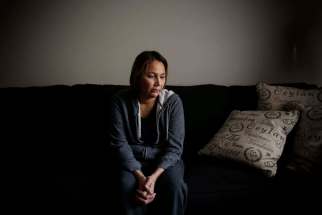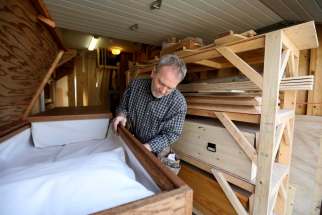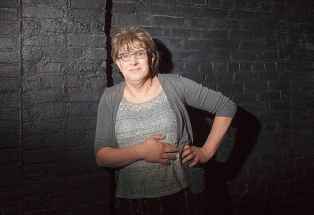An environmental undertaking Putting another dowel in the coffin is all part of woodworker's eco-friendly approach to building your final resting place
Read this article for free:
or
Already have an account? Log in here »
To continue reading, please subscribe:
Monthly Digital Subscription
$0 for the first 4 weeks*
- Enjoy unlimited reading on winnipegfreepress.com
- Read the E-Edition, our digital replica newspaper
- Access News Break, our award-winning app
- Play interactive puzzles
*No charge for 4 weeks then price increases to the regular rate of $19.00 plus GST every four weeks. Offer available to new and qualified returning subscribers only. Cancel any time.
Monthly Digital Subscription
$4.75/week*
- Enjoy unlimited reading on winnipegfreepress.com
- Read the E-Edition, our digital replica newspaper
- Access News Break, our award-winning app
- Play interactive puzzles
*Billed as $19 plus GST every four weeks. Cancel any time.
To continue reading, please subscribe:
Add Free Press access to your Brandon Sun subscription for only an additional
$1 for the first 4 weeks*
*Your next subscription payment will increase by $1.00 and you will be charged $16.99 plus GST for four weeks. After four weeks, your payment will increase to $23.99 plus GST every four weeks.
Read unlimited articles for free today:
or
Already have an account? Log in here »
Hey there, time traveller!
This article was published 25/04/2019 (2420 days ago), so information in it may no longer be current.
In the fall of 2004, months after Rick Zerbe Cornelsen hung a sign outside his home-based Fort Rouge workshop advertising his services as The Village Casketmaker, a woman in her 90s contacted him to say she was interested in purchasing one of his coffins, which are purposely made with biodegradable wood and a minimum amount of building materials so as to put less toxins into the ground than their more garishly fashioned counterparts.
The casket wasn’t for a loved one who had recently died, she explained. Rather, despite being in good health, she was planning ahead for her own, inevitable demise. She had come across a newspaper blurb about his no-frills designs and eco-friendly approach to burial and felt what he was turning out was right up her alley, she told him.

Following a bit of back and forth that included a personal visit to her home, Zerbe Cornelsen, a former employee of the Mennonite Central Committee, came up with a custom-made model he hoped would suit the needs of the woman, whom he describes as “a proud German.”
“She wanted a classic, toe-pincher-style coffin, the Dracula-type thing that’s wide at the shoulders and narrow at the feet. After agreeing on a price, she sealed the deal by handing me a bottle of wine, again assuring me she was in no great hurry,” he says, seated on a stool inside his 700-square-foot workspace, gold-coloured sawdust dancing in a stream of sunlight just above his head.
Upon completion, the married father of two invited her to pop by to take a look at what he’d come up with. A short while later, there she was, giving the container the once-over.
Sure, everything appeared copacetic, she announced, but there was only way to know for sure: she would have to “try it on for size.”
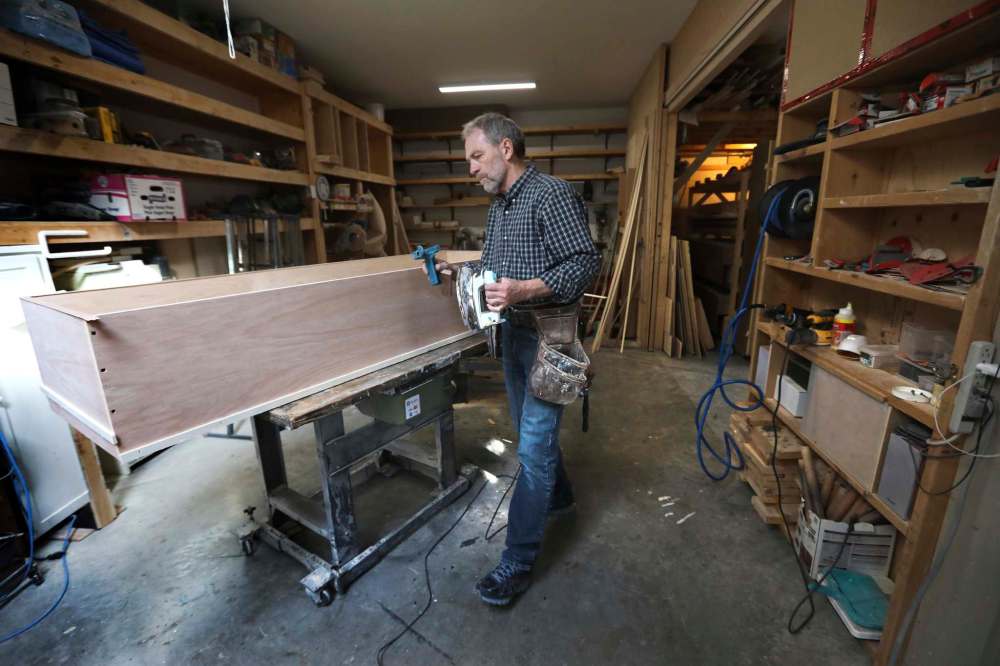
“Her son, who came with her and seemed more bemused than surprised by her actions, helped me lower her in. She laid down for a few seconds, declared it sufficient for its purpose then sat back up and pulled out this big wad of cash,” Zerbe Cornelsen continues, smiling at the flashback.
“About five years later, that same son called to say they had finally used the casket, which, because I don’t have room for that sort of thing here, his mom had kept stored at a friend’s place. I told him I considered it a privilege to have played a small part in her life journey.”
● ● ●
The youngest of five brothers, Zerbe Cornelsen grew up in Vancouver. Until a few years ago, his father, a church minister who moved to Canada from his native Germany in the mid-1950s, always had a carpenter’s workshop brimming with tools he brought with him from Europe. Once he retired from preaching, that was where you could find him morning, noon and night, building furniture and whatnot, Zerbe Cornelsen says.
In the late ’80s, Zerbe Cornelsen was paying his parents a visit when his dad invited him into their garage. He instructed his son to climb a ladder to an upper level, where a wide tarp was concealing his latest project.
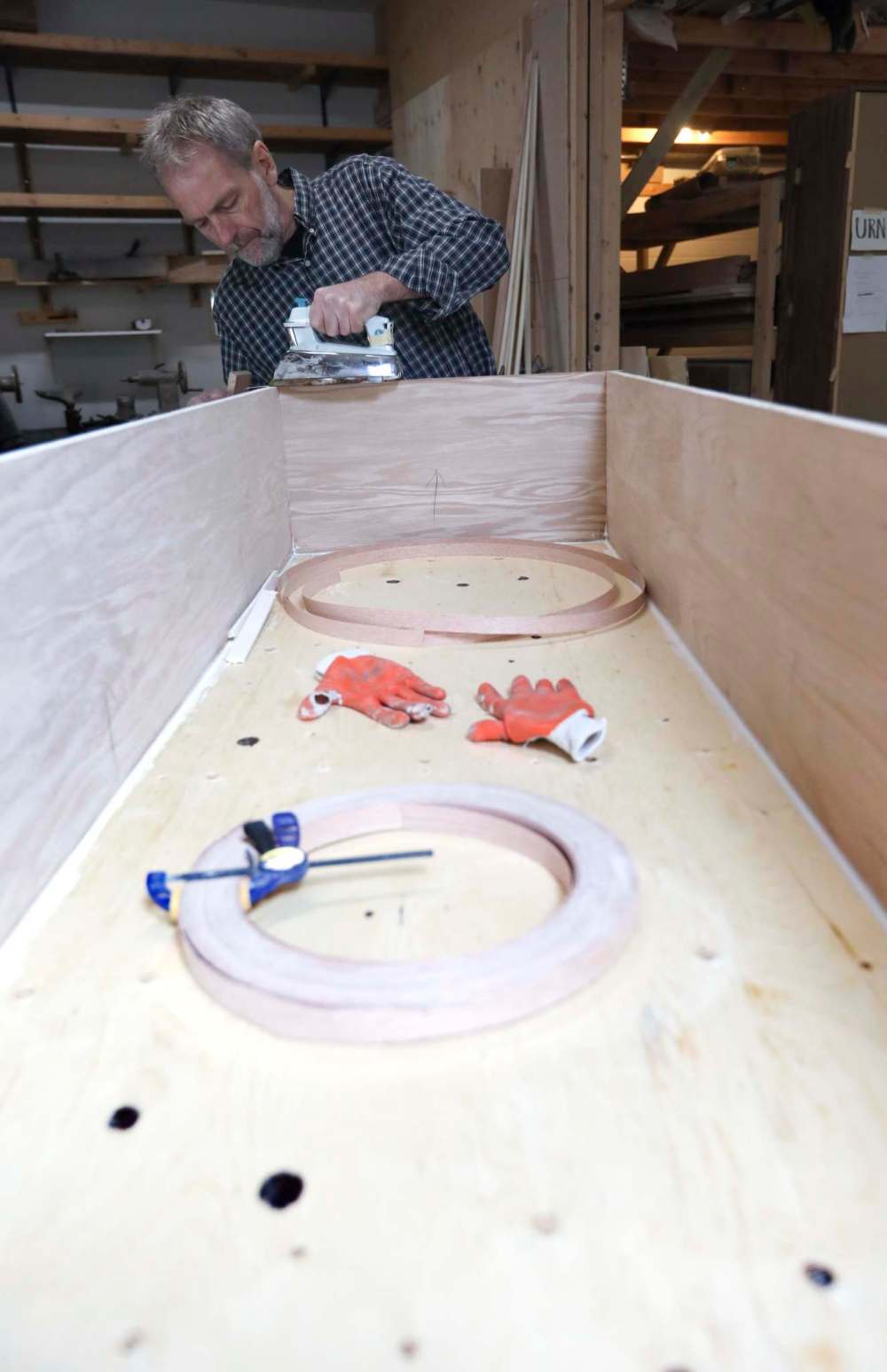
“I pulled it back, and underneath were two plain-looking wooden caskets: one for him and one for my mom. When I looked back at him, he was standing there beaming with pride, as if to say he was staring down his own death and, by bypassing a funeral home, beating the system while he was at it: two things that make a Cornelsen happy, right?”
Although Zerbe Cornelsen was somewhat startled to see a pair of his-and-hers coffins, he wasn’t totally shocked. For years, the exorbitant costs associated with dying had been a hot topic of conversation whenever he, his brothers and father, who is approaching 100 years old, were gathered in the same room.
“One of my brother’s close friends had gone into the funeral business and had reported back to us a bit of what it looked like from the inside. The simple story was that caskets were becoming fancier and fancier, which to our practical minds seemed completely absurd.
“Second, we learned whatever the production costs associated with building a coffin was, the retail price was three or four times that, at least. Surely, we thought, somebody could make something that still did the trick, that was simpler in design and far less expensive.”
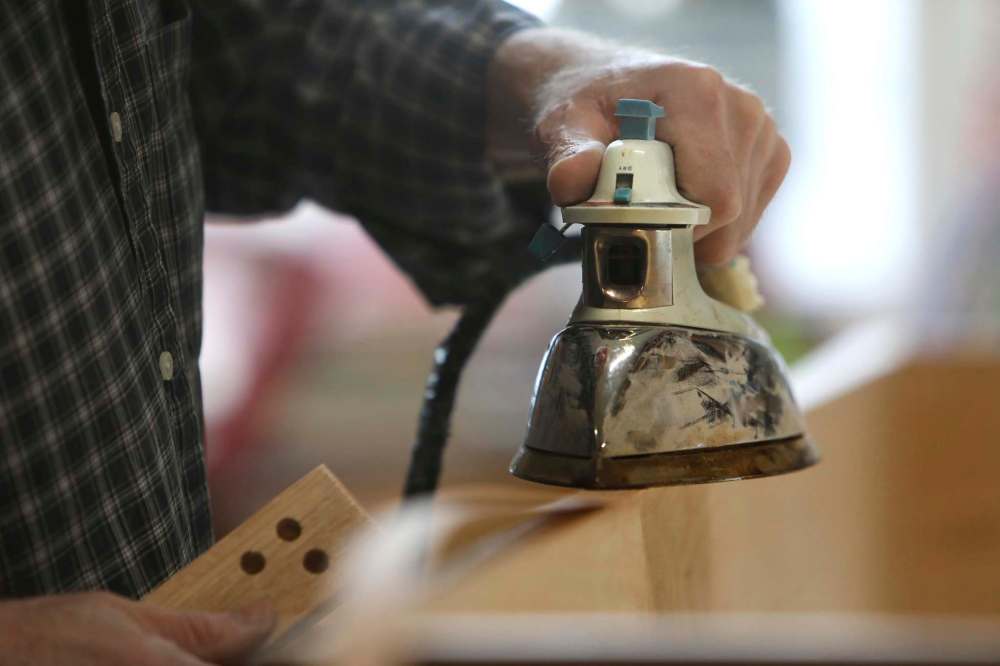
Zerbe Cornelsen left his job with the Mennonite Central Committee in 2003. The self-taught handyman kept busy doing home renovation projects and maintaining a couple rental properties, but also found time to construct a casket in keeping with what he and his siblings had discussed previously.
One problem: because he didn’t have anywhere in his garage to stack the finished product prior to selling it, he deposited it in the family living room, where his two children, age 9 and 11 at the time, used it as a coffee table while they were doing their homework or watching TV.
He had placed a small, classified ad for the coffin in a Mennonite newspaper and one morning, while he was doing a home reno, his cell phone rang. The man at the other end of the line said, “My wife just died, I hear you make caskets and I’m interested.” Zerbe Cornelsen immediately headed upstairs to tell the person he was working for, “Y’know, I think I just sold my first coffin.”
According to his website, Zerbe Cornelsen markets six types of caskets and an equal number of styles of urns. Environmentally conscious since Day 1, he uses as few nails and screws as possible, including one model, billed as the TimberWise Zero, that requires absolutely zilch in the way of glue or metal fasteners.
Stating “this is how my weird mind works,” he tells the story of how, a number of years ago, he was perusing the shelves of a downtown bookstore when he happened upon a tome about the Red River Settlement that discussed how Europeans who moved to these parts in the early 1800s built homes out of wood, and wood only.
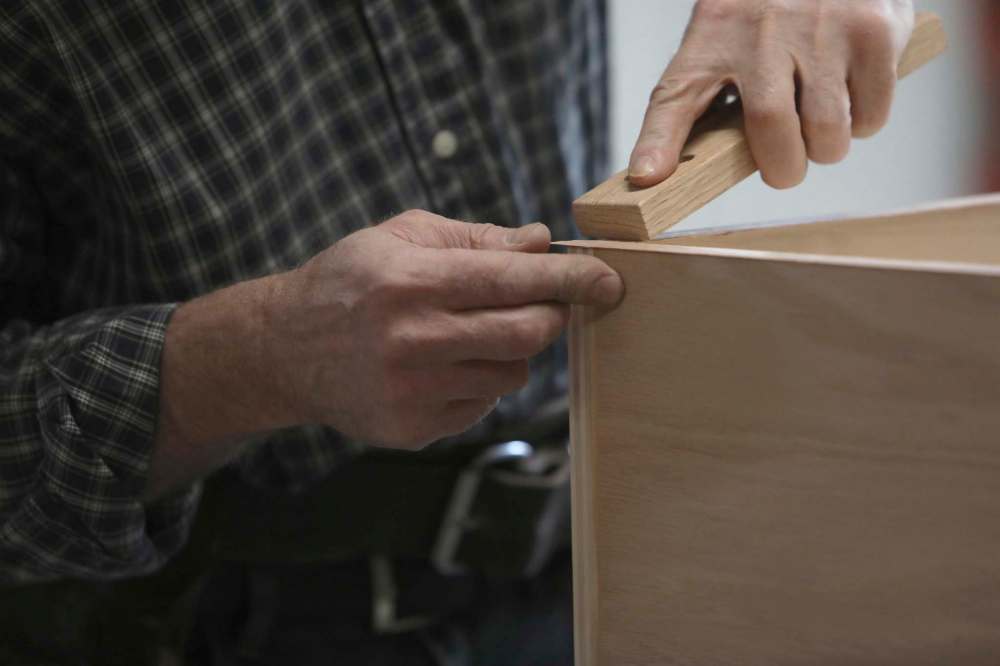
“I went home and sketched a (casket) design that would allow me not to use nails, screws or glue. The design is very labour intensive — if you count all the dowels there are close to 250 parts, in total — but if you’re interested in natural burial and are looking for something that’s going to bio-degrade rather quickly, short of being buried in a shroud that’s your best option.”
As for the question he gets asked most often: “What do funeral homes have to say about his no-nonsense caskets?” he has definitely done his homework, in that regard.
“My understanding is (funeral homes) could refuse a casket from an outside source if they have a legitimate concern about its capacity to do the job, if it really appeared shoddily-made,” he says, admitting somewhat sheepishly he’s never seen a single episode of the TV drama Six Feet Under, a fictional, darkly-humoured look at a family-run funeral home.
“For that precise reason, I tend to over-build mine, to ensure they’re strong enough. But what I do tell potential customers is to make sure they know what they’re getting into because while some funeral homes are willing to use caskets from an outside source, it is legal for them to administer a surcharge.”
(“Exactly,” he says, when a reporter remarks that sounds like a corkage fee, the sort of levy a restaurant doles out to parties that show up with their own bottle of wine.)
“Don’t assume because you spotted a casket there for $2,500 and bought one from me for $1,200 that you’re going to be saving $1,300. That might not turn out to be the case at all, I instruct them,” he goes on, adding he “totally gets it” when people want to go a different route, altogether.
“Folks who come to me are obviously open to alternatives but that’s not always the case when there are four or five people involved in the decision-making, especially when it’s siblings looking for something for a parent. One or two might want to buy from me but another will go, ‘This would be OK for me, but what are Mom’s friends going to think?’
“There have definitely been times I’ve taken a person aside and said, ‘Don’t do this if it’s going to cause a rift in your family. I believe in what I’m doing but it’s not as important as your relationship with your brothers and sisters.’”

For now, Zerbe Cornelsen’s venture remains a niche business at best given he sells, on average, one or two caskets a month. And while the revenue he makes from his handiwork is welcomed, it’s the personal interaction with those who’ve recently lost a loved one that makes what he does most worthwhile, he maintains.
“I put on a clean shirt for you today but ordinarily when someone arrives, I’m in my jeans with a mask over my face, caked in sawdust,” he says, pointing out he recently subscribed to Spotify — he’s a “huge” Bruce Springsteen fan — in order to keep himself entertained during the long hours he spends cutting and sanding.
“There’s a down-home quality to what goes on here you don’t get at a funeral parlour, I think. Lots of times it’s only been a few hours since people have lost somebody, and if they want to spend an hour or two sitting here chatting about their loved one, I’m always open to that. I consider that part of the benefit of what I do, that I get to hear people’s stories.”
david.sanderson@freepress.mb.ca
Dave Sanderson was born in Regina but please, don’t hold that against him.
Our newsroom depends on a growing audience of readers to power our journalism. If you are not a paid reader, please consider becoming a subscriber.
Our newsroom depends on its audience of readers to power our journalism. Thank you for your support.




